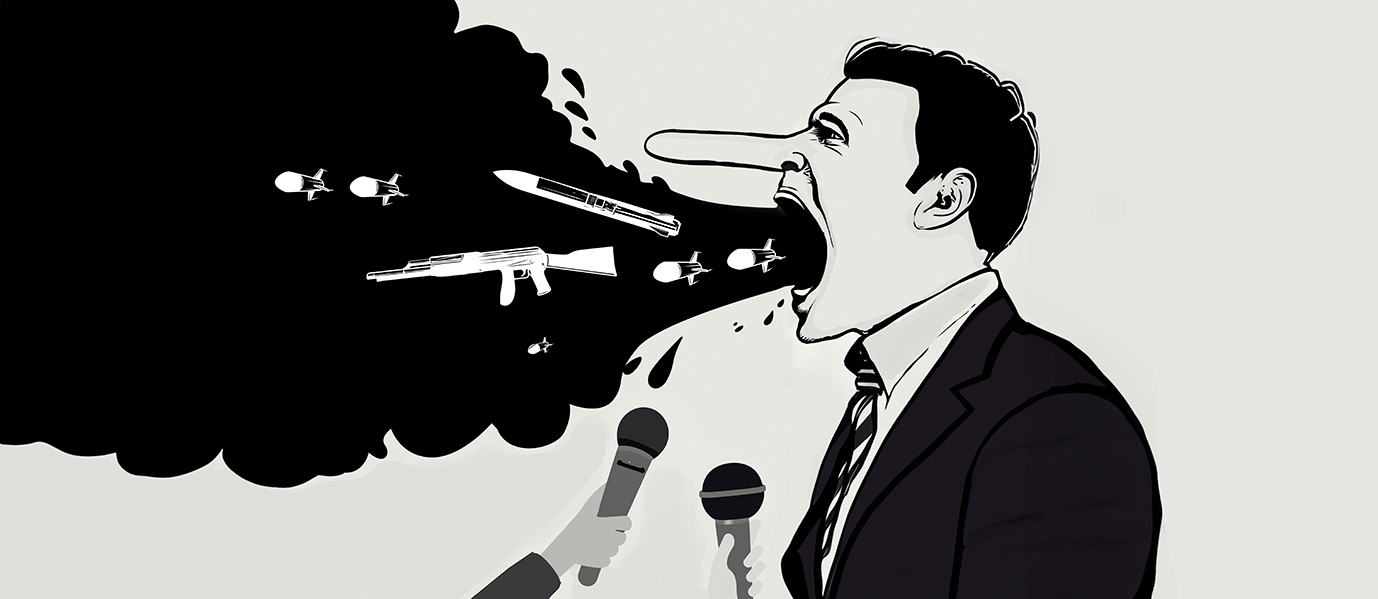The abuse of historical tragedies is psychological warfare
The Holocaust’s legacy is weaponized for evil by the Israeli occupation of Palestine.
Discourse on the occupation of Palestine by the Israeli government, even before October 7th and the subsequent military assault and genocide, is haunted by the memory of the Holocaust — and the historical parallels that arise from that are, in many ways, an intellectual and moral failing.
For Western establishments, the Holocaust has become a card dealt at the expense of Jewish people, and a reminder of historical Western failings and immorality. All the while, they relegate antisemitism to the past and ignore its hidden bloom in Western societies.
This sets the Holocaust as a frame of reference for all genocides, placed on a pedestal within a hierarchy of tragedies, a competition that inevitably ridicules the genocides of brown and black people. Where the Holocaust is rightfully met by an outcry of global grievances, brown and black struggles become historically innate and sidelined; a ticking bomb that was bound to explode. The Holocaust is uniquely horrific because every genocide is uniquely horrific. None have happened or will happen in humane circumstances.
Zionism is an ethno-cultural and political movement rooted in the establishment, protection, and expansion of a “Jewish nation” on native Palestinian land. The movement started in the late 19th Century and gained much traction due to the conflation of Judaism with Zionism, and the increasing precarity of Jews in Europe during the 20th Century. Antisemitism, on the other hand, is discrimination directed towards those of the Jewish faith, their beliefs, way of life, and communities.
In July, a controversy between two TikTok creators, @_madiswan_, also known as Madison, and @yuvaltheterrible, known as Yuval, saw precisely that. Madison, a Black content creator, stitched a video claiming that the Holocaust has been weaponized to equate Zionism with Judaism and serve Israeli propaganda. Yuval, a pro-Palestinian Jewish content creator, responded by claiming that such thought was bound in antisemitism. Yuval set the tragedy of the Holocaust above the trans-Atlantic slave trade and claimed that the Holocaust’s atrocity resides in the fact that “it happened in a civilized society [and] modern world.”
While Yuval followed the video with a series of nuanced apologies, the case rests as that — the Holocaust is sympathized for in the West because of its Eurocentric approaches in its weaponization. Many on social media and wider discourse have pointed out that other crimes against humanity, such as Belgium’s colonial exploitation of Congo during 1885 and 1908 resulting in the deaths of an estimated 10 million enslaved workers, are not nearly as rampant in the public consciousness of the Global North as the Holocaust is.
The abuse of the Holocaust’s history is only amplified in the case of Zionism. In the Israeli narrative, one of the factors for the establishment of the state was to protect the Jewish population in Europe from the rising extreme persecution during the early twentieth century. However, by claiming that the only solution for the “Jewish Question” in Europe is to occupy Palestinian lands painted the narrative that Palestinians owed reparations for the Holocaust. The narrative works to disregard the accountability of European persecution of Jewish communities and intensifies baseless anti-Arab racism.
The Holocaust is thus used as a fear-mongering machine to strengthen the Zionist state — a weapon that isolates Jewish communities around the world and alienates the Jewish population in the Middle East. It becomes a psychological threat to all.
The hypocrisy of the Holocaust’s weaponization by Zionism only intensifies when one notes the conditions in which Holocaust survivors live in Israel. One third of Holocaust survivors in Israel live in poverty, two thirds live in lonely conditions, and lobbies for increased financial aid have been overlooked by the Israeli government.
How is it, then, that a government so willing to frame the Holocaust as central to nationalist collective memory deems its very survivors as mere pawns in a game of Oppression Olympics?
All the while, they perpetuate a dangerous myth: that anti-Zionism is antisemitic. This allows them to conveniently target anti-Zionists as “Holocaust-deniers” and limit any forms of legitimate criticism again Israeli occupation, violence, and apartheid. It is then that the Holocaust is reduced to nothing more than a vehicle to instill fear and guilt.
But as Zionism abuses the Holocaust, Palestinians invoke the tragedy in defense. On numerous accounts, Palestinians and other pro-Palestinian voices have drawn parallels between the genocide in Gaza and the Nakba to the Holocaust. For example, some have labelled the Israeli government as the “new Nazi Germany”, and the President of Palestine, Mahmoud Abbas, equated the ongoing Nakba to “50 Holocausts” in 2022.
And while parallels exist, they are just that: parallels, not mirrors.
Both Palestinians’ and Israelis’ usage of the Holocaust mechanizes it as a constant point of reference for struggle. It deems it as a standard of genocide and dismisses its reality as a systematic murder of Jews that stems from a history of persecution.
But it must then be understood that the misrepresentation of the Holocaust by Palestinians is done to gain the sympathy of the West. It is a conscious effort assumed by a community’s cries that are actively dismissed in the wake of a genocide.
The Holocaust’s memory within the Israeli occupation of Palestine lives as a disproportionate analogy, weaponized for evil by one side and as a call for help by the latter. Regardless, such a misuse is as an intellectual and moral failure for both.
Associate Opinion Editor (Volume 50) — Yasmine is a third-year student, majoring in History and Anthropology. Her writing is best described as sometimes sarcastic, sometimes radical, and always an excuse to bring up her heritage (and colonialism). She hopes her work with The Medium will inspire conversations, debates, and a path to abandon our deeply rooted stubbornness. In her spare time, Yasmine enjoys reading, knitting, arguing with uncles on politics, and fangirling.


